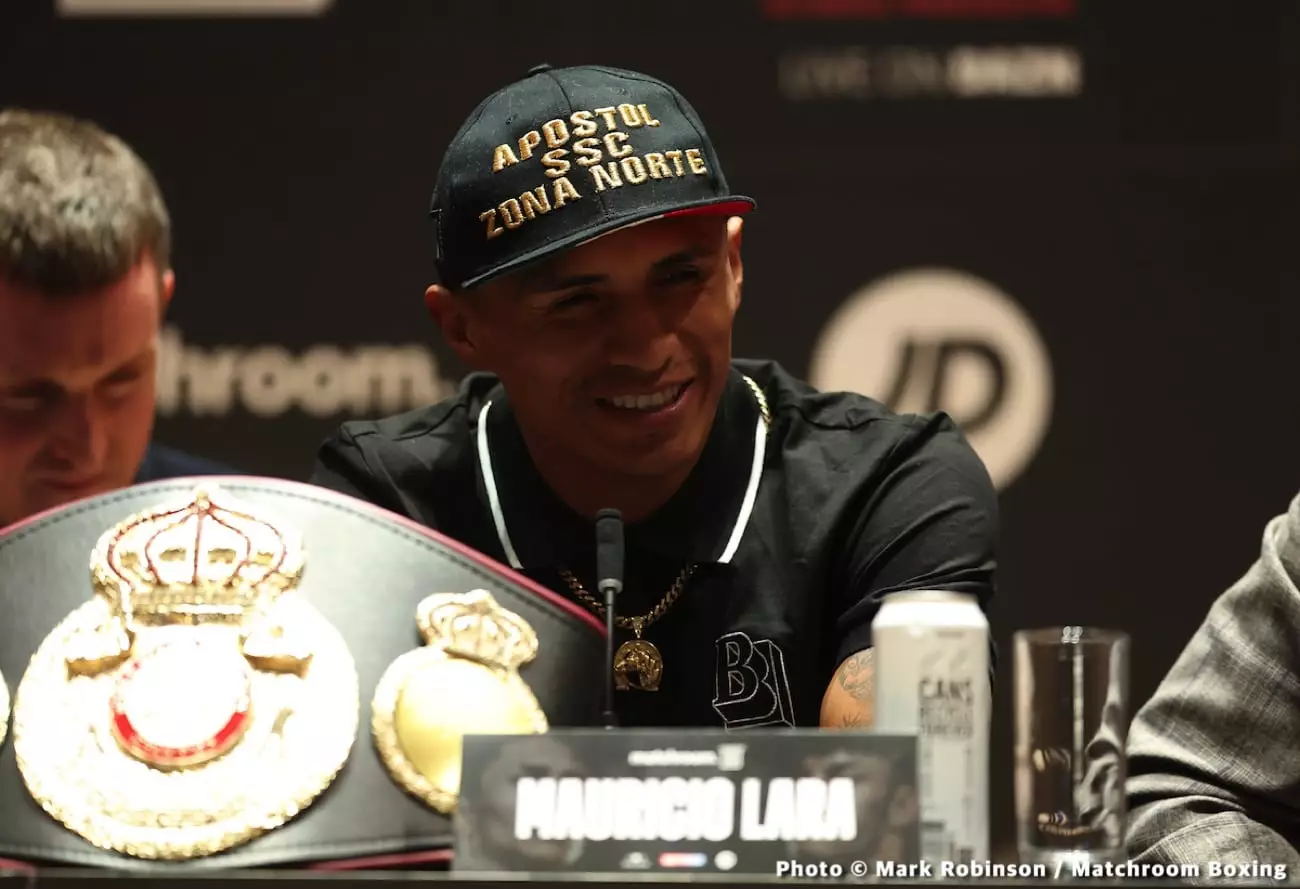There seems to be no end in sight for the boxing world’s ongoing battle with performance-enhancing drugs. Each week, we are slapped with reports of yet another fighter being implicated in drug use, casting a long shadow over the sport’s integrity. This week, focus is on Maurico Lara, the once-celebrated former WBA featherweight champion from Mexico. The news of Lara’s failed drugs test – due to the banned substance betamethasone – serves as yet another reminder of how the pursuit of glory can lead athletes down a dark and dangerous path.
It’s alarming how familiar this tune has become; high-profile fighters tarnishing their legacies with reckless choices related to substance use. The constant reminders of athletes testing positive, struggling for redemption, or facing bans are not merely scandalous tales but also a potential death knell for the sport’s reputation. Lara’s situation is particularly poignant, considering he had already garnered attention for a previous infraction of failing to make weight for a title fight and literally missing the mark by an embarrassing margin, weighing in at 129.8 pounds against the required 126.
The Dexamethasone Dilemma: A Cry for Pain Relief or a Push to Win?
Lara’s case spiraled from one troubling decision to another, with reports indicating that he received a shoulder injection of dexamethasone just before his rematch with Leigh Wood. While it’s hard not to sympathize with an athlete dealing with injuries, especially in a sport as punishing as boxing, there is an unmistakable line between seeking legitimate medical aid and crossing into the realm of forbidden substances. Dexamethasone, a glucocorticoid, is not just another pain reliever; it can amplify performance and enhance recovery, blurring moral lines.
The narrative surrounding Lara becomes even murkier when considering the implications of this drug use. A fighter’s reputation hangs precariously on their conduct inside and outside the ring. In Lara’s case, if not for Wood’s decisive victory, the outcry might have been far more significant. It raises crucial ethical questions: Was Lara genuinely seeking to reclaim his health and career, or was he willing to sacrifice fair play for fleeting glory?
The Aftermath: A Fighter’s Fall from Grace
Following the announcement of his suspension, starting in March 2024, Lara’s career hangs in the balance. At only 27 years old and with a record that once painted him as an exciting contender in boxing’s lower weights, he is now branded a “proven cheat.” The fracture between his aspirations and reality is painfully apparent. Moreover, having participated in fights after his failed drug test while under suspension in Mexico, Lara escapes under the radar where regulations are lax, illustrating yet another layer of the problem.
What stands out in this situation is not merely the failings of a single athlete but rather a systemic issue permeating boxing, particularly within regions where anti-doping regulations are less stringent. The World Anti-Doping Agency’s influence wanes beyond specific jurisdictions, allowing ringside corruption to proliferate freely.
Competing in a sport that is often seen as a gladiatorial showcase, the inherent pressure to succeed can lead fighters to make decisions that ultimately undermine their integrity. Yet, the athletes are also products of an environment that often glorifies victory at any cost, creating a tumultuous legacy that can shatter across the unforgiving glare of scrutiny.
An Urgent Call for Reform in Boxing
This situation must serve as a wake-up call for boxing authorities worldwide. It’s not enough to respond to individual cases but rather to examine the underlying framework governing doping policies in the sport. Transparency, consistency, and rigorous enforcement of anti-doping measures must be prioritized to deter fighters from succumbing to the allure of shortcuts.
The sport demands a collective commitment to rebuild its integrity, taking a stand against the normalization of drug use under the guise of self-preservation or competitiveness. The path ahead is challenging, but if boxing is to regain its footing and allure, it must confront these issues head-on. Maurico Lara’s story should not become yet another note in a never-ending litany of failures but rather a catalyst for profound change and accountability in the ring.

